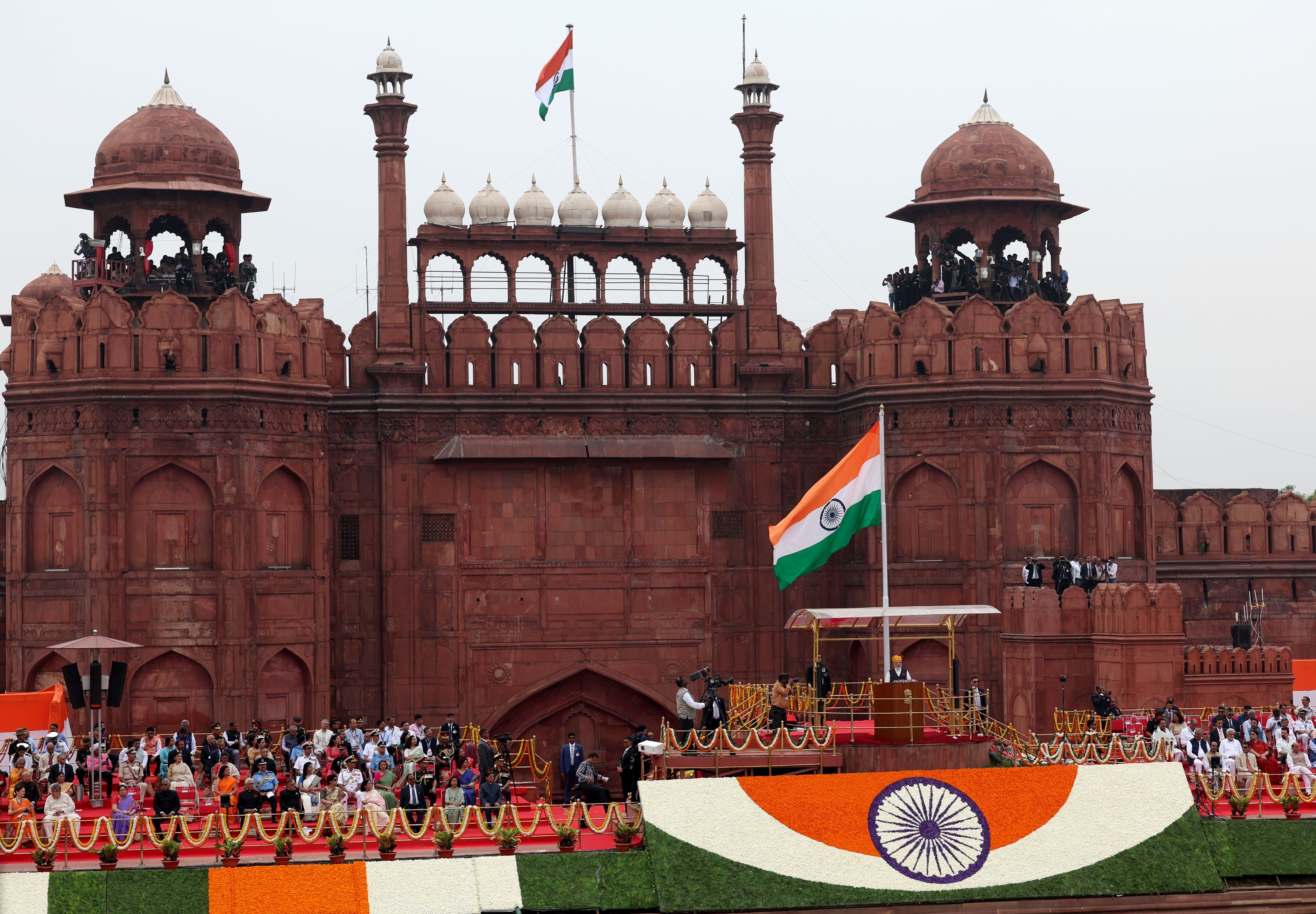
Quest for justice, equality, harmony must continue
In his last I-Day speech before the 2024 Lok Sabha polls, PM Narendra Modi on Tuesday called for a war against the ‘three evils’ of corruption, dynastic politics and appeasement.
He also asserted that the next five years will be a period of unprecedented development and will prove to be a golden period in realising the dream of a developed India by 2047.
These are lofty goals no doubt considering that corruption has sunk its roots deep into society while dynastic politics is increasingly becoming an accepted ‘evil.’
There are many who even justify it wondering aloud what’s wrong if sons and daughters of politicians, who grow up in an intensely political atmosphere, aspire to follow in their parents’ footsteps.
Interestingly, the PM has also spoken about the need to fight appeasement. This at a time when his party, the BJP, has overtly and covertly made attempts to appease the majority community by coming down hard on the minorities.
It has happened in Haryana where the minorities were targeted mercilessly after the unrest following a procession taken out by a pro-Hindutva outfit.
Now, all eyes are on the procession, which the outfit plans to take out again later this month in a state that goes to polls in 14 months from now. Many would have felt happier if the PM had also spoken about the need for religious harmony, justice and equality in a country where these are increasingly under threat.
Continuous and mischievous efforts to divide communities, particularly when elections are round the corner, is an ugly phenomenon people of this country have been witness to multiple times.
It has happened in Karnataka and it will keep happening here and elsewhere too unless people come up with a firm no to anyone who tends to resort to such divisive tactics to score political points.
As for justice, it’s still a dream for a huge proportion of the population even 76 years after Independence.
The Dalits who continue to bear the brunt of shameful practices, have been at the receiving end of everything from being banned from drinking from the same well, to being punished for touching a cricket ball during a game played by upper castes.
Instances of Dalit girls being raped and murdered and of students belonging to the lower strata, being subjected to humiliation and taunts for no fault of theirs, even driving them to suicide, have become all too common.
There are no doubt scheme and schemes for the welfare of the SC|STs but the social change and the casteless society, which our founding fathers dreamt of, remain distant dreams.
And can there be justice without a determined drive to ensure equality – economic and social – among citizens?
There are experts who would reel out statistics to claim that poverty is on the decline but what about the millions of under-nourished, child labourers and the socially ostracised, languishing in the fringes of society waiting for succour?
And what about the migrant workers who cross state borders with their few belongings to eke out a living in distant lands and bear the brunt whenever there is social unrest and they are forced to flee?
Then there are the landless rural masses and small farmers who are left without a morsel to feed on and fall back on the merciless moneylender when the monsoon plays truant and the crops dry up.
As the nation rolls toward another general election that will determine its fortunes for a full five years, the quest for justice, equality and harmony should remain paramount on every Indian’s mind and the nagging question whether we have achieved it in any substantial measure in the past 76 years.
Or do we have miles and miles to go?
 English daily published in Bengaluru & Doha
English daily published in Bengaluru & Doha






